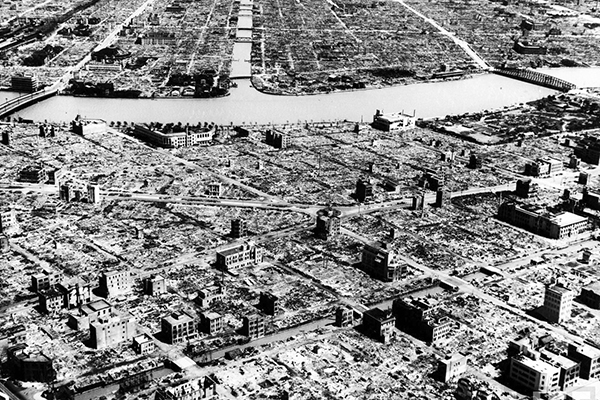Nuclear Radiation Gives Survivors Oratory Superpowers
On Friday, Ms Sasamori and Mr Hirata shared their personal recollections with a packed lecture theatre, bringing a tear to the eye of even the toughest of attendees. The charismatic Ms Sasamori had all eyes on her as she retold the exact moment she saw the bomb fall from the plane, and the “unexplainable” force that knocked her off her feet. She suffered third-degree burns on 25% of her body, and vividly recalls seeing other burned victims lying dead in the city’s many water troughs; “It was just like hell.”
Mr Hirata focussed on the after-effects of the A-bomb rather than the day itself: The continuity of effects generations later, the diseases, and the stigma faced by survivors due to fears about radiation. He urged the crowd not to “be afraid excessively; understand.” In recalling the damage done in Japan on that one day, he reminded us of the current state of nuclear armament: “You can imagine 17,000 nuclear weapons can easily extinguish the Earth.”
A peace vigil was held at the International Peace Pole at the Otago Museum Reserve the next day, where the same speakers told their stories and pressed their cause once again. Despite the many years that have passed since that day, the two remember it more clearly than perhaps any of their other memories, and will continue to spread their message “as long as [they] live”.
Kevin Clements, the University of Otago National Centre for Peace and Conflict Studies director, reiterated that New Zealand has been “resting on its laurels” as far as nuclear policy goes. However, he was determined not to end on a pessimistic note – Friday included pieces of art commemorating the day and the Hibakusha (A-bomb survivors), and Saturday had a performance by the “O-Taiko” drumming club to remind us of “all that makes life worthwhile.”




